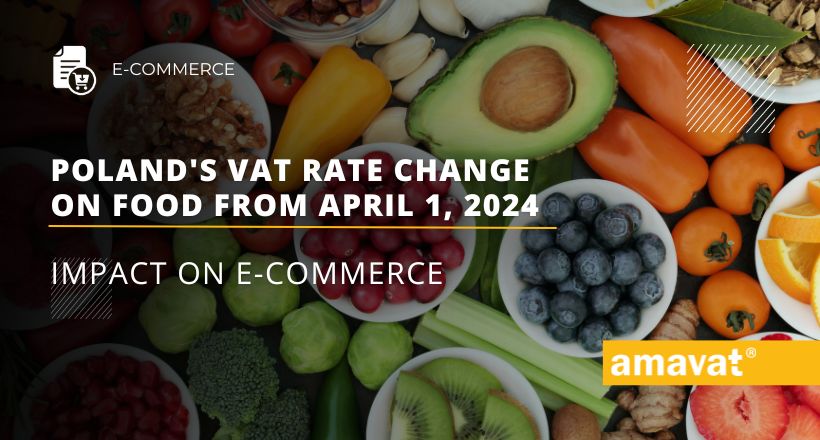Poland’s VAT rate change on food from April 1, 2024: Impact on e-commerce
The Ministry of Finance recently announced a decision to raise the VAT rate on basic food products from April 1, 2024. Instead of the previous zero VAT rate, which had been in effect since February 2022, a rate of 5% will be applied. While this change may seem like a technical financial aspect, it could have significant consequences, especially in the context of e-commerce, where the food industry is increasingly developing.
The 0% VAT rate was introduced when inflation reached 9.2% in January 2022. However, currently, with inflation falling to 3.9% on an annual basis, the Ministry of Finance has decided to return to a 5% VAT rate on selected food products. The changes will affect products such as:
- meat and fish and their products,
- milk and dairy products,
- eggs,
- natural honey,
- nuts,
- vegetables and fruits and their products,
- animal and vegetable edible fats,
- grains and grain products, including bread and pastry,
- specified preparations and milk for the nutrition of infants and children, as well as dietary foods for special medical purposes.
However, returning to a 5% VAT rate on food may result in a sudden increase in inflation by approximately 0.9 percentage points, according to experts’ forecasts. This change may be particularly harsh for individuals with lower incomes for whom food constitutes a significant portion of expenses.
In the context of e-commerce, where the food industry is increasingly developing, the increase in the VAT rate may have significant consequences. More and more people are opting to shop online due to convenience, time-saving, and the wide range of available products. The increase in the VAT rate may prompt some sellers to raise prices, which could discourage some customers from making online purchases. This, in turn, may affect the competitiveness of e-commerce in the food trade sector.
For taxpayers selling food products, it will be necessary to adjust to the new regulations. Reprogramming fiscal cash registers, determining correct VAT rates, and updating Binding Tariff Information (BTI) will be crucial for proper business operations.
For more information on VAT in Poland, visit our website: Poland VAT – The Rates & Registration.
In summary, the impact of the VAT rate increase on food on the e-commerce sector will not be straightforward. Although it may pose certain challenges, it may also pave the way for innovation in the industry, encouraging sellers to seek new solutions to maintain the attractiveness of their offerings for customers. Online sellers will need to monitor consumer reactions and adjust their sales strategies to the changing market situation.
In case of doubts or need for professional advice, we offer comprehensive support under the Accounting for e-commerce service in Europe: Contact us – amavat®.
WE ARE HERE FOR YOU!
amavat® team






